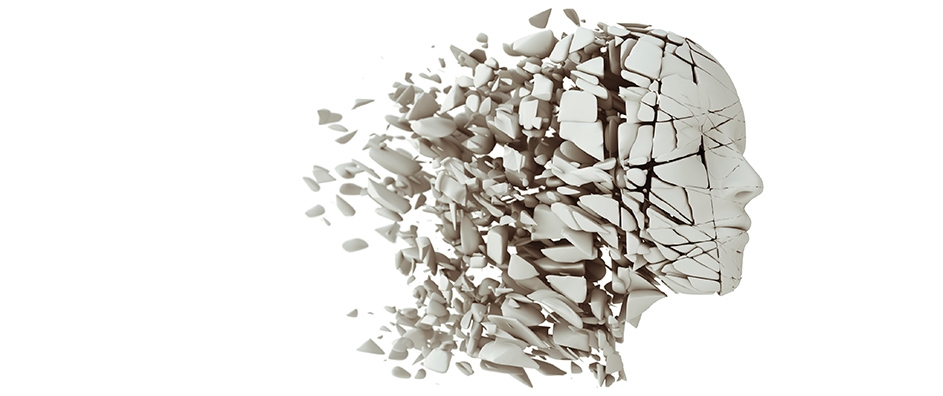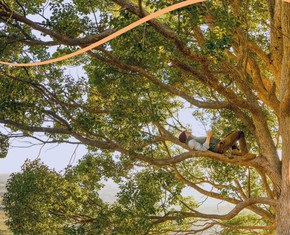The views expressed in our content reflect individual perspectives and do not represent the authoritative views of the Baha'i Faith.
The first life, which pertaineth to the elemental body, will come to an end… But the second life, which ariseth from the knowledge of God, knoweth no death… – Baha’u’llah, Gems of Divine Mysteries, p. 35.
You see all round you proofs of the inadequacy of material things — how joy, comfort, peace and consolation are not to be found in the transitory things of the world. Is it not then foolishness to refuse to seek these treasures where they may be found? – Abdu’l-Baha, Paris Talks, p. 112.
What lasts?
Some people claim that in this life, only money will give you lasting security.
Some say that a close family bond lasts an entire lifetime.
A loving marital relationship can give us everlasting happiness, some maintain.
Others will tell you that a good education and a profession will always stand you in good stead.
But all of us know, deep in our hearts, that none of those things are true.
Money can be lost, spent, taken. A family can turn hostile, even to its own members. Relationships can and often do end. A profession can disappear, if you learned it in the wrong country or the wrong language or the wrong period in history.
Nothing rooted in this physical world lasts, the Baha’i writings say. Beauty fades, health gives way to illness, youth inevitably ages, everything material eventually decomposes and disintegrates. Anyone who really observes the world and its state of constant change understands that entropy eventually prevails.
As I’ve begun to contemplate my eventual departure from this physical world, I’ve started to think about what does last; and to reflect on the idea that what matters most lasts longest. In that quest, the Baha’i writings have really helped me understand the difference between the temporary and the permanent:
These few brief days shall pass away, this present life shall vanish from our sight; the roses of this world shall be fresh and fair no more, the garden of this earth’s triumphs and delights shall droop and fade. The spring season of life shall turn into the autumn of death, the bright joy of palace halls give way to moonless dark within the tomb. And therefore is none of this worth loving at all, and to this the wise will not anchor his heart.
He who hath knowledge and power will rather seek out the glory of heaven, and spiritual distinction, and the life that dieth not. And such a one longeth to approach the sacred Threshold of God; for in the tavern of this swiftly-passing world the man of God will not lie drunken, nor will he even for a moment take his ease, nor stain himself with any fondness for this earthly life. – Abdu’l-Baha, Selections from the Writings of Abdu’l-Baha, p. 220.
What do you think Abdu’l-Baha means when he says “to this the wise will not anchor his heart,” and “in the tavern of this swiftly-passing world the man of God will not lie drunken”? My understanding of those powerful phrases has to do with our purpose as human beings here in this physical plane of existence:
…man is not created for the life of this ephemeral world — nay, rather, is he created for the acquirement of infinite perfections, for the attainment to the sublimity of the world of humanity, to be drawn nigh unto the divine threshold, and to sit on the throne of everlasting sovereignty! – Abdu’l-Baha, Tablets of the Divine Plan, p. 45.
 Everyone eventually has to come to terms with this huge question, maybe the biggest question anyone can ask themselves: Why am I here? What’s my purpose? Is there a point to my creation?
Everyone eventually has to come to terms with this huge question, maybe the biggest question anyone can ask themselves: Why am I here? What’s my purpose? Is there a point to my creation?
We all have a short stay here on Earth. We only get a century or so, and sometimes much less, to tackle the big questions of life. If we decide that nothing exists beyond death, this physical life becomes very hard to leave. If we believe that death means only oblivion and annihilation, we preclude any future beyond our material existence.
But if we accept the Baha’i teachings and the teachings of every other great Faith, with their assurance that our souls live on, we can start changing our point of view. We can happily look forward to death as another birth, as the entrance to a new spiritual reality, as only a relative term that indicates change rather than cessation. Once viewed that way, death loses its dread, and becomes something to anticipate with delight.
I’ve begun to do exactly that.
In fact, in my recent ruminations and meditations on death, I’ve now realized that I feel ready. Don’t get me wrong—I don’t have a death wish. But when it does come, as it does to everyone, I’ll welcome my passing. I won’t mourn, and when I’ve made the transition to the next world, I don’t want the ones I love to mourn, either. I actually look forward to it, as I would to the beginning of any exciting journey:
I have made death a messenger of joy to thee. Wherefore dost thou grieve? I made the light to shed on thee its splendor. Why dost thou veil thyself therefrom? – Baha’u’llah, The Hidden Words, p. 11.
















Comments
Sign in or create an account
Continue with Googleor